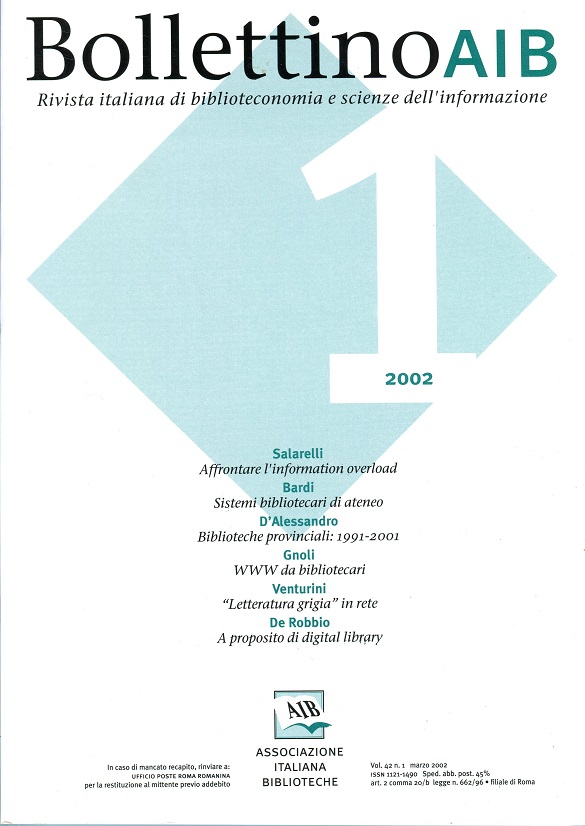Dealing with information overload: a reflection on pathologies from information excess
Main Article Content
Abstract
The problem of information excess is not typical only of those who as a profession produce and use the information itself, it is a general problem that affects to a more or less greater degree all those who live in countries with a high rate of information technology. Considering the characteristic ailments of the syndrome of information overload (stress, failure to concentrate, sense of prostration, headache) the pathology can be considered one of the typical illnesses of the affluent society on a par with obesity, cardiovascular disease, gout. The causes of information overload should be sought in an environmental pollution suffered by those who spend their time within a complex computer system composed of prominent elements such as equipment for reception and transmission, other simpler ones like advertising posters or bright signs, and so on towards an increasingly more minute and numerous mass of material that sometimes seems meaningless but which rather "has meaning" and which therefore continuously acts on our sensorial receptors and from there on our minds. This pollution is not made manifest through explosive and spectacular phenomena. It is rather a form of subtle pervasion, as tenuous as the bits that penetrate our space, our bodies, our human materiality. For this close connection between technological development and infoglut, the most significant steps in the path of growth of the systems of telecommunication and of control of information flows coincide with those of the birth of the phenomenon of information overload. If the avalanche of information that daily attacks each one of us is a social illness, the person who lives side by side with the patient trying to identify, on the basis of profound etiological experience, the best therapy, should be considered as the "family doctor". This professional figure is represented by the librarian who carries out a profession that has never so much as now acted as a bulwark against the definitive barbarization of the spirit. This should be understood above all in the sense of a capacity to see themselves as elements of particular and complex geographic and chronological dynamics. It is for this reason that the possibility of accessing quality information sources is essential nowadays. The librarian covers the role of a filter not as a complementary component of his profession, but as an essential, ethical element. And the library is the ideal place for processing the information and producing the added value, a value represented by those nodes patiently and wisely entwined, in the form of catalographic or bibliographic files, nodes that represent the base for a system of relations - explicit in their meaning - between the different information sources. The solutions to the problem of information overload can be approached at different levels. A central point is certainly the necessity to develop a "culture of information", that is to say an attitude of the spirit that is willing to rediscover the pleasure, the taste for information exchange. While not neglecting the teaching of the fundamental techniques of bibliographic research, space should be found in the library for those who know how to transmit a "taste" for documents: poets, painters, musicians. Consideration should be given to the possibility of creating spaces of adaptation of the information quantity, metaphorical spaces where it is taught to appreciate what Roland Barthes defined the "pleasure of the text".
Article Details
Section
Articles

This work is licensed under a Creative Commons Attribution-ShareAlike 4.0 International License.
